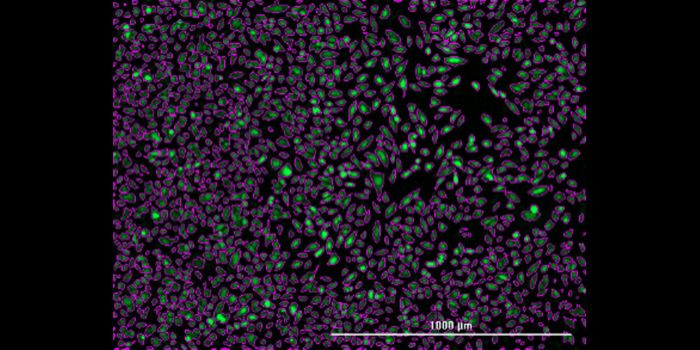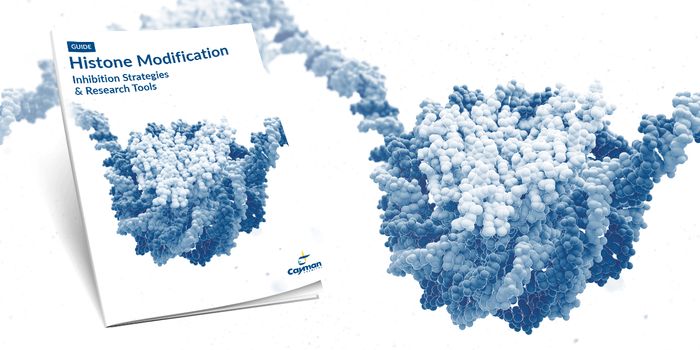Nerve Cells in the GI Tract are Capable of Regeneration
Scientists at Johns Hopkins have reported interesting new evidence that upends common knowledge about gut nerve cells. Their work suggests that neurons in the mouse digestive tract regenerate, incredibly, about five percent every single day. This study, published in the Proceedings of the National Academy of Sciences could have major implications for how we treat and understand the digestive system.
Previous work has posited that healthy adults don’t create new neurons, but Pankaj Jay Pasricha, M.B.B.S., M.D., Professor of Medicine and Director of the Johns Hopkins Center for Neurogastroenterology, along with Subhash Kulkarni, M.S., Ph.D., Assistant Professor at the Johns Hopkins University School of Medicine, led a team of researchers that revealed a life cycle in the millions of neurons residing in the guts of mice.
“Scientific dogma believed that gut neurons don’t regenerate and that this ‘brain,’ known as the enteric nervous system, remained relatively static shortly after birth,” Pasricha said. “We now have proof that, not only do they regenerate, but the whole network turns completely over every few weeks in adult animals.”
Proof of nerve cell regeneration, or neurogenesis, has been tough to capture. For this work, the scientists took samples from mouse intestines like the one shown in the video above; in it, the green indicates a network of neural precursor cells, which are constantly making new neurons. Blood vessels are shown in blue while cell nuclei are grey. The entire enteric nerve system, which controls critical gastrointestinal processes, is recreated in only a few days.
"The yin and the yang of neuronal loss and birth keeps us going," Kulkarni said.
In their work, the researchers found a high rate of death among the neurons of the small intestines of healthy adult mice. It led them to wonder how the neuronal population stayed constant. "There could be only one answer," noted Kulkarni. "The high turnover of neurons in the gut could only be reconciled by birth of newborn neurons, or neurogenesis."
"Although previous studies have shown that regeneration of adult neurons may happen in an injured gut," Kulkarni says, "by and large, this appeared a relatively isolated and rare phenomenon. We now provide evidence that this happens continually and robustly in the adult healthy gut. It helps explain how this nervous system maintains itself, despite constant exposure to dietary factors, toxins, microbes and mechanical forces.”
“We didn’t believe it ourselves, at first,” Pasricha, whose lab has been working on these neural stem cells for many years, says of the findings. “It's an extraordinary result; the mice get an entirely new ‘brain’ in the gut every few weeks."
He noted that since this work was limited to the mouse small intestine, further research will be necessary in order to find out if other species, including humans, or other parts of the gut undergo the same cellular birth and death processes. The research is ongoing in Pasricha’s Johns Hopkins lab.
The new findings may aid in the identification of new therapies for gastrointestinal motility disorders like achalasia, gastroparesis, pseudo-obstruction, colonic inertia and other disorders involving the digestive system.
"And as we dig deeper into this research," said Kulkarni, "we will gain new insights into a whole host of other diseases that affect not just the gut, but other organ systems with which this nervous system communicates, such as the brain."
Learn more about the enteric nervous system from the video.



![Everything You Need To Know About NGS [eBook]](https://d3bkbkx82g74b8.cloudfront.net/eyJidWNrZXQiOiJsYWJyb290cy1pbWFnZXMiLCJrZXkiOiJjb250ZW50X2FydGljbGVfcHJvZmlsZV9pbWFnZV9mNTM1ZjIyYzA5MDE5ZmNmMWU5NmI0ZDc4NWU2MzdiZTZlN2I5ZDk5XzE4NDUuanBnIiwiZWRpdHMiOnsidG9Gb3JtYXQiOiJqcGciLCJyZXNpemUiOnsid2lkdGgiOjcwMCwiaGVpZ2h0IjozNTAsImZpdCI6ImNvdmVyIiwicG9zaXRpb24iOiJjZW50ZXIiLCJiYWNrZ3JvdW5kIjoiI2ZmZiJ9LCJmbGF0dGVuIjp7ImJhY2tncm91bmQiOiIjZmZmIn19fQ==)




